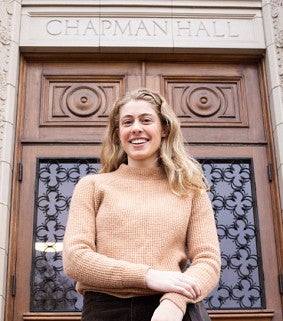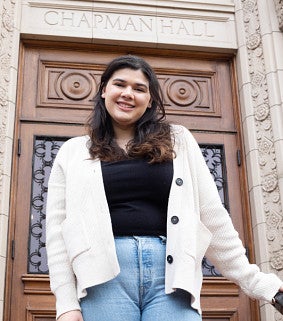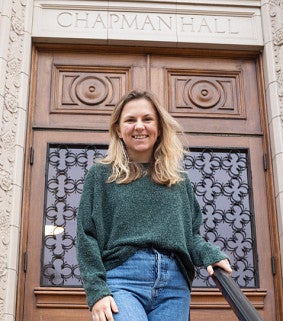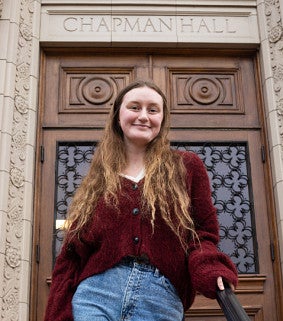How the Clark Honors College community has an impact on the male-dominated field of data science.
As the University of Oregon strengthens its position as a leader in Science, Technology, Engineering, and Math (STEM) fields, the Clark Honors College remains a solid partner in supporting those efforts.
That’s especially true when it comes to diversifying the field of data science. CHC Acting Dean Carol Stabile has taken an approach that opens the door for women and people of color to enter the mostly male-dominated field.
Next month, Stabile and four CHC students will participate in the Women in Data Science Conference at Stanford University. The conference features lectures and workshops by women working to revolutionize the field.
The CHC students all work in data science at UO. They will conduct interviews with notable participants and write stories for Ms. Magazine. “Conducting interviews and attending the conference will let them start building the kinds of networks that are going to help them be transformational leaders,” Stabile says.
Stabile has a long history of publishing stories in the magazine, so when editors first contacted her about covering the conference during the pandemic, she immediately extended the offer to her students. The relationship has blossomed since then. She points to the massive influence data has on many aspects of our society as what motivates her to push for change. “Chat GPT, to take one example of this, is only as good as the data sets used to train AI,” Stabile says. “When those are data sets that don’t include diverse perspectives, then you’re just going to reproduce inequalities.”
The University of Oregon started offering a data science major in 2020. And the university has been developing plans for the School for Computer and Data Science, which opens its doors in the fall of 2023. Stabile wants the CHC to help support the new school’s diversity efforts. She points out that nearly half of data and computer science majors in the CHC are women.
By comparison, some studies that have appeared in the STEM and Culture Chronicle that writes about issues affecting underserved populations, show only about 15 percent of data scientists are women and even fewer are people of color.
Read more about the four CHC students and their experiences.
—Story by Elizabeth Yost and Bella Oberlatz, Clark Honors College Communications
—Photos by Ilka Sankari, Clark Honors College Communications




